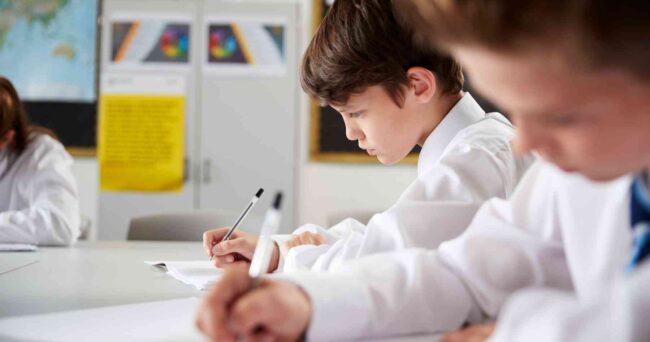In an ever-evolving world, the future of private education is a topic of immense importance. As we navigate the complexities of the 21st century, the landscape of education is undergoing remarkable transformations. In this comprehensive article, we will delve deep into the trends and innovations that are reshaping the world of private education. From personalized learning to the impact of technology, we will explore it all. Join us on this journey into the future.
Private education has always been a pillar of academic excellence, providing students with tailored experiences and opportunities for growth. However, to remain relevant and effective, the private education sector must adapt to the changing needs of students, parents, and society as a whole. This article will explore the most influential trends and innovations that are shaping the future of private education.
The Role of Technology in Future of Private Education
Leveraging EdTech for Personalized Learning
One of the most prominent trends in private education is the integration of technology to enhance personalized learning experiences. Educational Technology (EdTech) has revolutionized the way students access information and interact with educational content. Adaptive learning platforms use AI algorithms to analyze individual learning patterns and provide customized lesson plans. This not only improves student engagement but also boosts retention rates.
Virtual Reality (VR) and Augmented Reality (AR) in Education
The incorporation of VR and AR in private education is another exciting development. These immersive technologies have the potential to transport students to different eras, countries, or even fictional worlds. Imagine studying history by virtually walking through ancient civilizations or dissecting a virtual frog in biology class. Such experiences not only make learning more enjoyable but also deepen understanding.
The Importance of Soft Skills
Nurturing Creativity and Critical Thinking
Private education institutions are increasingly recognizing the significance of nurturing soft skills alongside traditional academic knowledge. Creativity, critical thinking, communication, and problem-solving are essential skills for success in the 21st century. Innovative teaching methods focus on honing these abilities and preparing students for the challenges of a rapidly changing world.
The Rise of Blended Learning
Combining the Best of Both Worlds
Blended learning, which combines traditional classroom instruction with online elements, has gained immense popularity. This approach allows students to benefit from face-to-face interactions with teachers while also taking advantage of online resources. It provides flexibility and fosters self-directed learning, a skill that is invaluable in the digital age.
Inclusivity and Diversity
A More Inclusive Educational Landscape
The future of private education is also marked by a commitment to inclusivity and diversity. Educational institutions are striving to create environments that welcome students from various backgrounds. This not only promotes social harmony but also exposes students to a broader range of perspectives, preparing them for a globalized world.
Sustainability in Education
Teaching Environmental Responsibility
As the world grapples with environmental challenges, private education institutions are taking steps to instil a sense of environmental responsibility in students. Sustainable practices, eco-friendly campuses, and curriculum that emphasizes environmental stewardship are becoming commonplace.
The future of private education is bright and dynamic, driven by innovative trends and a commitment to excellence. As we embrace technology, nurture soft skills, and prioritize inclusivity and sustainability, private education will continue to evolve to meet the needs of a changing world. By staying informed about these trends and innovations, both educators and parents can make informed decisions to ensure a bright future for the next generation.
FAQs
Q: How are private schools integrating technology into their classrooms?
Private schools are embracing technology by incorporating EdTech tools such as adaptive learning platforms, virtual reality experiences, and online resources.
Q: What are soft skills, and why are they important in education?
Soft skills refer to interpersonal skills like communication, creativity, and critical thinking. They are essential because they prepare students for success in the modern world, where collaboration and adaptability are key.
Q: What is blended learning, and how does it benefit students?
Blended learning combines traditional classroom instruction with online elements, offering students flexibility and the opportunity for self-directed learning.
Q: How can private education institutions promote inclusivity and diversity?
Inclusivity and diversity can be promoted through inclusive admissions policies, diverse faculty and staff, and a curriculum that celebrates different cultures and perspectives.
Q: Why is sustainability important in education?
Sustainability education teaches students about environmental responsibility and equips them with the knowledge to address pressing global issues.
Q: What role does parental involvement play in private education?
Parental involvement is crucial in private education as it fosters a strong partnership between parents and educators, ensuring the holistic development of students.


